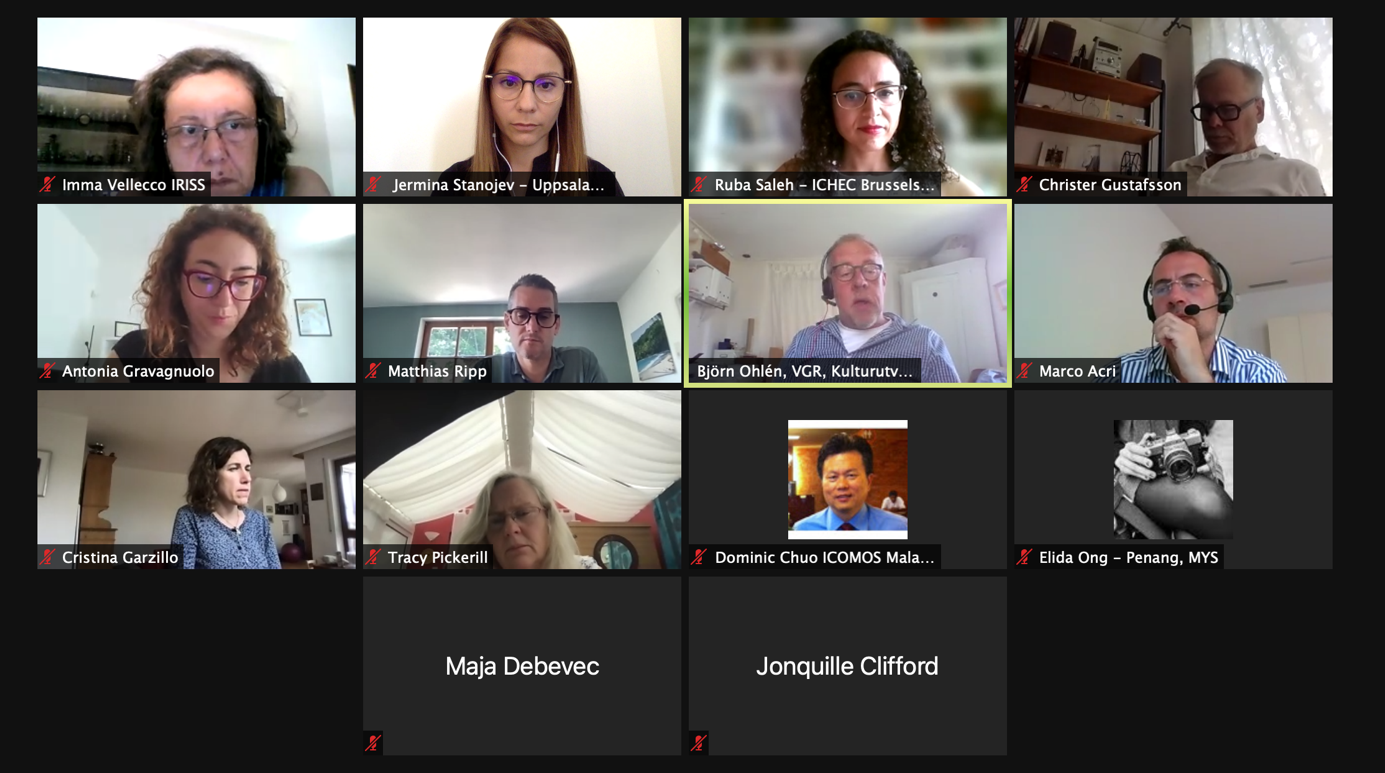The Swedish HERITAGE-PRO Multiplier Event (roundtable) has been organised online by HERITAGE-PRO partner Restrade on 28 June 2021, titled “Cultural Heritage Professions and Skills in an Interdisciplinary World”.
The aim of the event was to discuss HERITAGE-PRO material with the participants, all of them being professionals from the cultural heritage sector, how to go further about evolving cultural heritage professions and skills in an interdisciplinary environment. Clearly, cultural heritage conservation is not anymore requiring only technical skills and knowledge, but much more than that. What are the needs and how do we address that as professionalists, practitioners, academicians…? Participants from Sweden as well as international participants have attended the event and gave several presentations.
Presentations on the high relevance of interdisciplinarity
Jermina Stanojev, Uppsala University/ Restrade has given an introduction – “From Structured Dialogue with the European Commission to HERITAGE-PRO project and beyond” presenting the state of art regarding timeline, different steps that led to HERITAGE-PRO, and projects that are developed under the same umbrella of the European Commission. She presented HERITAGE-PRO material that has been already distributed to participants ahead of the meeting.
Christer Gustafsson, Uppsala University/ Restrade gave a presentation “Conservation 3.0 Cultural Heritage Professions and Skills” referring to the development of cultural heritage professions and skills through Conservation 1.0 where the preservation of monuments was the focus (gathering knowledge, analysing cultural heritage, protection), Conservation 2.0 with maintenance and restoration as the central aspect, arriving to the Conservation 3.0 with a shift to adaptive reuse and sustainable development with the emphasis on new activities on the improved premises requiring new professions and skills.
Antonia Gravagnuolo from the Institute for Research on Innovation and Services for Development (IRISS) gave a perspective from “Circularity Aspect and Lessons Learned from CLIC project” in regard to “circularity of skills”. Although the CLIC project did not have a focus on skills, the professions and skills appear to have a major role in the circularity process.
Ruba Saleh from the ICHEC, Brussels Management School, explained the role of cultural heritage professions and skills in regard to “Cultural and Creative Sectors at a Crossroad” and the fundamentally increasing role of creative sectors in economies and development fields.
Björn Ohlén shared their experience from Västra Götalandsregionen “Cultural Heritage Professions Shift in Practice – experience of Västra Götalandsregionen” as a Swedish region that is largely involved in many EU projects and some of them are tackling similar issues as HERITAGE-PRO, namely the CHARTER project. Västra Götalandsregionen is not only involved in many EU projects but taking different steps in adapting their skills and the team toward addressing new needs of the cultural heritage field that has become more and more interdisciplinary.
The lively discussion raised questions on “why we teach what we do not need” and how educational material could be more adjusted to contemporary needs.
HERITAGE-PRO training material accepted by the cultural heritage experts
Following the outcome of the event’s evaluation, 100% of the experts regarded the training material presented in general as very useful or useful for their daily work / for people working in cultural heritage management. Especially the training modules on global challenges and participation were regarded by the participants as specifically useful and interesting for their work. They would prefer to do the training as a self-learning course (25%), in a group of colleagues (40%), and in a group with a professional teacher (35%). 87% can imagine using the training material in the near future.
(Authoress: Jermina Stanojev / RESTRADE)
Picture credit: RESTRADE

